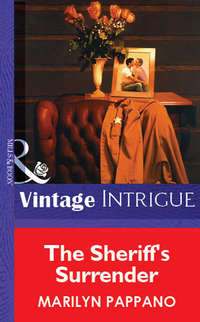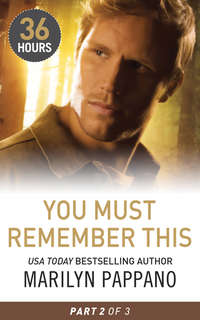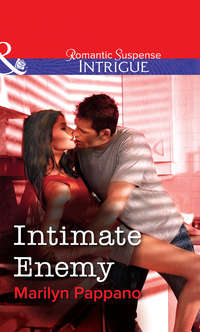
Полная версия
Copper Lake Confidential
He shook his head to clear it. He would probably never see her again. Scooter rarely used the same hiding place twice. Though she might come in handy as a model for the repressed daughter of the Lord Gentry Tu’anlan, who escaped her fortress home to become one of the Warrior Women who guarded the Crystal.
Turning his back on the window, with the repressed but rather pretty Ma’ahcee forming in the back of his mind, he began typing again.
The brief interruption of Scooter and his master had eased a bit of the tension knotting Macy, a fact she hadn’t noticed until she walked back into the house with her suitcase and her entire body went tight again. One even breath after another, one forced step after another, she went to the purse she’d left on the kitchen island and pulled out the list she’d made.
Go inside. Walk through the rooms. Take bag inside. Unpack in guest room. Change clothes. Start.
An overly simple list, but some situations called for a step-by-step guide, Shrink #4 had told her. Every situation, no matter how stressful or complicated, can be broken down into manageable steps. Time to test his theory.
Mentally she checked off the first three items, then let her gaze shift through the doorway and down the hall to the stairs. She thought of the dust particles, of climbing the stairs, of being as far from an exit as she could get in the house, and skipped ahead to the last item.
Start. Start sorting through six years of furniture, treasures and detritus. Start choosing what to take with her and what to leave behind. Start rebuilding the life Mark had stolen from her. Start over. One manageable step at a time.
First she needed packing supplies. Once in the van, she backed out of the driveway and into the street, and the tension in her shoulders eased. As she turned out of the subdivision onto the main road, it eased even more. It wouldn’t go away, not while she remained in Copper Lake, but it was a definite improvement.
Her destination was the self-storage facility on Carolina Avenue that also rented moving vans and sold packing supplies. She didn’t know the clerk behind the counter, and thankfully he didn’t seem to recognize her, taking her cash and helping her load bundles of cartons, rolls of Bubble Wrap and heavy paper and tape into the back of the van.
She would have driven straight back home except for a wandering glance at the riverfront park while she sat at a red light. Seated there on a bench, watching two small children play, was Anamaria Duquesne Calloway. Though they’d socialized with the same people, they’d never been friends, not really. The Calloways were the one local family more prestigious than the Howards, but Mark had never approved of Robbie Calloway’s wild behavior before marriage, and he certainly hadn’t approved of Robbie’s marriage to the mixed-race Anamaria, so he’d kept Macy at a distance.
However, once, while she was pregnant with Clary, Macy had gone behind Mark’s back to meet with Anamaria. She’d wanted the psychic’s assurance that everything was fine with the baby, and she’d gotten it. The easing of her worries had been worth Mark’s irritation—and his grandmother’s fury—when he’d found out.
Once, Macy reflected as the light changed. Once, in the years they’d been married, she’d done something Mark hadn’t wanted.
She would have driven past the entrance to the park if some bit of resentment hadn’t seeped through her. Instead, she turned in, parking beside the lone vehicle there. She was being pushy. If she wanted Anamaria’s professional advice, she should call and make an appointment. She shouldn’t intrude on a mother’s playtime with her children. She should, shouldn’t, wouldn’t, couldn’t…
Before the argument inside her had played out, there was a tap on the window. Startled, she looked up to see Anamaria’s sympathetic face. With a click, she opened the door and slid out, straight into Anamaria’s comforting embrace.
“Macy. It’s so good to see you.”
For a moment she held herself stiff—when she was stiff, it was harder to be overwhelmed by emotion—but it took too much effort. She softened in Anamaria’s motherly embrace. She felt welcomed. Unjudged.
“I’d heard you were coming back,” Anamaria said when at last she eased her grip.
Macy smiled faintly but didn’t ask from whom. The answer could be as simple as her husband—the lawyer who’d handled both Mark’s and his grandmother’s estates—or as complex as some soul on the other side, maybe Mark. Maybe even her lost baby.
A small hand gripped the hem of Macy’s dress, and she looked down to see Anamaria’s daughter staring up at her. “I’m Gloriana,” she murmured around two fingers tucked in her mouth. “Where’s your little girl?”
Macy blinked, then looked at Anamaria. “I must have mentioned Clary to her sometime,” the woman said with a serene smile.
“She’s with her uncle,” Macy replied, unconvinced by Anamaria’s smile. According to rumor, every Duquesne woman had gifts of one sort or another. Gloriana was young, but no age was too young to use the talents you’d been born with, she supposed.
“Go play with Will.” Anamaria gave her daughter a gentle push before linking arms with Macy. “Come sit. We’ll talk. Are you coming home?”
“No.” Macy’s reply came automatically. When they reached the bench, she sat down, then shrugged. “I can’t face…You know how people love to gossip. Eventually Clary would have to pay the price.”
“No one blames you or Clary. How could they?”
“We lived with him, Anamaria. I lived with him, I shared a bed with him, I was married to him for seven years. And all that time I never had a clue that he was…”
Even now it was hard to say: he was a remorseless cold-blooded killer. The husband she’d loved so much, who’d been such a doting father, had beaten strangers to death and buried them on his grandparents’ property right outside town. And to make his evil even worse, he’d learned the skill from his grandfather.
The blood of serial killers ran through her daughter’s veins.
Shuddering despite the warm afternoon sun, she hugged herself tightly. “I should have known. I should have suspected something.”
“Are you psychic now?”
Her gaze cut sharply to Anamaria, who was watching her closely, but not in the same way her family did. They were looking for signs that the depression was returning, the weakness overtaking her, the instability gaining control. They didn’t understand how difficult it was when her every move was scrutinized: Is this the action, the thought, the comment of a sane person? Is she rational, merely emotional or sinking back into the abyss?
But there was nothing measuring or judging about Anamaria’s gaze. A simple question, a simple look.
“No, I’m not psychic. But I should have…”
“Mark and his grandfather were very good at hiding their secrets. You couldn’t have known unless he wanted you to.”
Macy breathed deeply. That was what the psychiatrists, the psychologists and even some of the other patients in group therapy had told her. Somehow it sounded more convincing coming from a woman with the gift of sight.
“What are your plans now?”
Macy’s laugh was rusty. She probably hadn’t used it more than a half dozen times in the past eighteen months. “I don’t suppose you could tell me.”
After a moment, Anamaria took her hand in both of hers, her expression growing distant, as if watching a scene no one else could see. “Everything’s going to be all right in the end,” she said at last. “If it’s not all right now, then this isn’t the end. It’ll come, Macy. One day you’re going to realize that you and Clary are better than ever.”
They were just words, but Macy knew words had power. Words had destroyed every illusion she’d ever had, and now they gave her, if not peace, at least a little hope. She did find them hard to believe, but she could embrace the possibility. She could believe that sometime in the not-too-distant future, her life would be good again.
She had to believe it.
Or there was no reason to continue living.
Chapter 2
In need of a break, Stephen saved his file to the hard drive, then emailed it to himself. It also went automatically to an online storage account, too, but, hey, a guy could never be too careful. Sometimes the old saying “Writing is easy; just sit down and open a vein” was too true. When words were hard to come by, he didn’t risk losing any of them.
He stood and stretched, joints popping, before walking to the front door. “Wanna go for a walk?”
Scooter glanced up from his place on the couch, yawned and settled in deeper. Eat, sleep, play—that was his routine.
“Next life I’m coming back as a dog,” Stephen muttered as he went out and locked up behind him.
The spring air was warm, the sun shining. He’d done cold for four years, getting his degree at Oklahoma State University Center for Veterinary Health Sciences, then another winter in Cheyenne, Wyoming. He’d be happy if he never saw snow or subzero temperatures again.
Hands shoved in his hip pockets, he turned north and walked to the end of the road, past each of the three neighboring houses. Elderly sisters and their husbands lived in the first two, and he called hello to them, the sisters sitting on one porch, the husbands swapping stories on the second. The last house was occupied by a great-grandson or -nephew who drove an eighteen-wheeler and was gone more often than not. Stephen hadn’t seen him five times in the months he’d lived there.
When the road ended just past the third house, he considered taking the path that led into the pine woods, eventually reaching Holigan Creek, where he’d found a shady spot that was great for kicking back. Instead, he turned and went back the way he’d come, speaking to the old folks again, passing his own house, heading for the Woodhaven gates.
He wasn’t athletic. The closest he’d ever come to a team sport was online fantasy games with players around the world, and the only weights he’d ever lifted had been in the form of dogs, cats and various body parts of horses or cows. But he liked to walk. It cleared his head and freed his subconscious to work on the current book without his conscious self having to take part. It was one of the best perks of writing.
The Ancients knew there wasn’t a lot of money in it, not for a midlist fantasy author. But he loved it, and his audience was building with each title. An author couldn’t ask for much more.
Though the New York Times bestseller list would be nice.
His intent was to turn around at the gates, return home and shoot for another thousand words before his muse gave out, but movement just past the gate caught his attention. A minivan—the name didn’t do the luxury vehicle justice—was parked in the driveway of the first house on the left, its hatch open, and the woman he’d met thanks to Scooter was wrestling out a bundle of flat boxes bigger than she was.
He went to help her because his mama didn’t raise him to ignore someone in need of assistance. That was the only reason. Her being pretty in a skittish-mare sort of way, with brown eyes that dominated her face and porcelain skin that Scarlett O’Hara would have killed for, had nothing to do with it.
“Here, let me give you a—”
Before he could say hand, she whirled around. The boxes fell to the ground, one sharp edge landing on her sandaled foot, and she stumbled back against the van, mouth open in a silent gasp, eyes huge.
“Sorry. I didn’t mean to startle you.” He wasn’t exactly known for quiet grace. Size-thirteen feet were never stealthy, and he tended to scuff his shoe soles when he was thinking about something. But, judging by the paleness of her already-pale skin, Macy Howard had been preoccupied, too.
“I—I—” Her hands fluttered and a shiver passed through her, reminding him of a parrot he’d once treated. He still bore the scars on his left arm. “I’m sorry. I wasn’t paying attention.”
Never apologize. That was the First Rule in his protagonist Lucan’s life. One of these days Lucan would have to break that rule—if he didn’t, Sa’arca would rip his heart out; Warrior Women were funny that way. “You’re entitled to not pay attention.” He picked up the bundle, not much heavier than Scooter and not nearly as unwieldy. “Where you do want these?”
A little pink returned to her face, but she still looked as if she might bolt any second. “In the garage, please.”
The garage was big enough for three vehicles and so clean that his house looked like a pigsty in comparison. The walls were painted tan, and the floor was surfaced with some sort of grit in a darker shade. A worktable against one wall held the same collection of tools he had at home: screwdrivers in various sizes, a hammer, a few wrenches, a pair of pliers. Along with athletic, he wasn’t exactly mechanical, either.
A lawn mower, an edger, a trimmer and a plastic cart were gathered in one corner, all well-used, unlike the tools. Rakes and shovels hung on hooks on the wall; a shelf held motor oil, extra trimmer line, paper towels and paper leaf bags. The rest of the space was empty.
He rested the boxes against the wall near the door into the house. “Are you moving out?”
“I’ve already done that.” She deposited two giant rolls of Bubble Wrap nearby, then managed a weak smile. “I’m sorting through things. Deciding what to keep and what to get rid of.”
“Where do you live now?”
She hesitated. Unsure whether to tell him? After all, they were strangers. Then, with a lack of grace that wasn’t normal for anyone who could afford a house in Woodhaven Villas, she gestured. “I don’t actually live anywhere right now.”
Interesting answer. Ranked right up there with her blank look when he’d asked what she did earlier. Maybe she really was Macy Howard and this really was her house, or maybe she wasn’t and it wasn’t. It wouldn’t hurt to ask Marnie.
She pushed her hand through her hair, dislodging the suede band that kept it from her face. “I’ve been staying with my parents in Charleston. It’s time to get a place of my own. To move on. I just haven’t decided where.”
“Not in Copper Lake, huh?”
An expression of distaste crossed her face fleetingly. If he hadn’t made a habit of studying people since he decided he was a writer, he would have missed it. “Preferably not.” She left the garage to gather more packing materials, and he followed.
He’d never made a move where he hadn’t underestimated how many boxes and rolls of wrapping paper he needed, but that didn’t seem a possibility with Macy. Cartons and materials filled the minivan, with the exception of the driver’s seat. Even the passenger seat was filled with thick slabs of paper and rolls of tape.
Already moved out. Packing up stuff. No wedding ring. Staying with her parents. He was guessing there was a very unhappy divorce in her recent past. Not that he could really imagine any other kind of divorce. He’d heard urban myths about friendly ex-spouses making a better go as friends and coparents than as husband and wife, but he hadn’t witnessed the phenomena himself. His mom’s divorces—from the husband who had produced Marnie, then from his dad—had left her soured on men in general. His own divorce had involved as much fighting as the marriage, and they’d had precious little to fight over.
But there was no polite way to ask where her ex was while she sorted through and packed up their house, no matter how curious he was. Instead, he returned to the van for the next load.
Within minutes, the vehicle was empty and one bay of the garage had pretty much disappeared under the supplies. After setting down the last bundle of boxes, he shoved his hands into his pockets and rocked back on his heels, seeking something to say.
“Well.”
Macy’s smile was tight as she folded her arms across her middle, the classic body-language pose warning others to keep their distance. Unless she was cold, and she didn’t look cold. “Thanks for the help,” she said without meeting his gaze. “I appreciate it.”
“You’re welcome.” He stood there a moment longer before taking a few steps backward then pivoting to stride the length of the driveway.
Well. Brilliant comment for someone who’d ranked respectably high in his vet med graduating class and made part of his living with words. Animals and characters who existed only in his head were so much easier to deal with.
But not nearly as interesting as Macy Howard.
Macy made it halfway to the door before her feet automatically stopped.
Was she ready to face the monster inside?
Immediately she corrected herself. Mark had been the monster. The house had merely been his lair. There was nothing inside that could hurt her; she’d already faced the worst hurt possible when she’d lost the baby. Nothing here could scare her; she might have run away before, but she was strong now.
With a deep breath, she went through the door almost as if life were normal. She’d managed to assemble one box, ready for use, when her cell phone rang. The ring told her it was Brent. Common sense told her he was calling because she’d failed to check in yet.
“Hey, bub,” she greeted him, making an effort to sound as if she were on a relatively even keel.
“You didn’t call.”
“I intended to as soon as I took a break for dinner.” Before he could ask, she went on. “The trip was fine, the house is fine and I’m fine. How’s my baby girl?”
“Missing you. Anne and I are doing our best to keep her happy.”
Macy pulled out a bar stool and eased onto the buttery soft leather. Poor Clary had spent much of the past eighteen months missing her mom, through the times when Macy had been physically present but not so much mentally to the months her absence had been physical, as well. Months in a psychiatric hospital—luxurious, costly and no place for a small child. “Give her a big hug and a kiss for me. I can’t wait to see her Friday. You, too. And Anne.”
“We’re anxious to see you, too.”
Anxious, she was sure, was putting it mildly. There were enough years between them—seven—that he’d always had a protective streak, but after Mark’s death, it had multiplied ten times. Where before he may have gotten mildly concerned, now he was truly anxious, edgy, burdened with worry over her mental status, her ability to handle the slightest of stressors. If she hadn’t won Anne over in her argument to come here alone, she never would have managed to leave Charleston without him by her side.
One more debt of gratitude to her sister-in-law. Anne had had enough family drama of her own. Her older sister had been a patient at the same hospital as Macy, which was how Anne and Brent had met. Now she’d married into a family with its own share of drama.
“So you’re doing okay. Really okay.”
She smiled to help the confidence come across in her voice. “I am. Really. I got all the packing stuff, and I was just taping boxes together so I could get started. I’m fine, Brent, honestly. It’s an empty house. It’s no big deal.”
Though she hadn’t been able to climb one step to the second floor. Though her suitcase remained three feet away in the kitchen, and sleeping on the sofa in the family room wasn’t beyond the realm of possibility.
“I met a new neighbor.” She fiddled with one of the apples in the bright green colander while trying to distract him. “His name is Scooter, and he was trampling my daylilies. He was really quite nice, though, and apologized before leaving.”
There was a moment’s silence, then Brent cautiously repeated, “Scooter?”
“I know, awful name, isn’t it? Just about anything else would be better.” Her smile felt more natural as she recalled the dog feigning sleep, then innocence, then remorse. He’d been the one bright spot in her day—he and his owner.
Stephen Noble. Nice name. Nice guy.
“Okay, I give up,” Brent said. “Are you teasing or did you really meet someone named Scooter?”
She’d had a sense of humor before Mark’s betrayal and the miscarriage her doctor had attributed to overwhelming stress. For Clary’s sake, for her own sake, she was going to get that back. “I really did. He’s a beautiful yellow Lab who lives down the street and escapes every day to avoid taking his medicine.”
Brent’s chuckle was a reward. Just as the laughter had disappeared from her life, so had it from his. Her parents had been there for her, too, but the bulk of responsibility had fallen on him. He couldn’t get back those months, but she hoped that from now on, he and Anne could have the happy, hopeful lives newlyweds deserved.
“I’m assuming since Scooter couldn’t tell you about the medicine, you met his owner, too. Was she nice?”
“He,” she corrected him as an image of Stephen flashed into her mind again: tall, lanky, handsome in a disheveled sort of way. She hadn’t had disheveled in her life since meeting Mark. She would never have rigid and dishonest—oh, yeah, let’s not forget sociopathic—again. “Yeah, he was. He’s a vet in town.”
“Clary needs a dog when you’re up to—” Brent stopped, coughed, then lamely finished, “when you’re settled wherever.”
When you’re up to it. When you can take responsibility for yourself and your daughter. When you’re normal again. Once more Macy put all the everyday-average she could force into her voice. “I agree. I’d like having a dog in the house. Preferably one that would only piddle where he’s supposed to.” And stayed out of her flower beds, because wherever they wound up, she would have flowers.
With the awkwardness past, they talked a few minutes more before Brent said goodbye. As soon as she hung up, she missed the sound of his voice and felt the solitude closing in around her a bit more sharply. She wished she’d already gotten a dog so he could follow her from room to room and maybe bark a little or whine, just to remind her she wasn’t alone.
“Okay, Macy, you’re twenty-nine years old. The shrinks all agreed it was time for you to be on your own again. You’re on your medication, and you know staying busy helps keep the anxiety under control. Now do something.”
Her voice seemed to echo off the stone and tile and stainless, giving her the impetus to slide to her feet and go back to assembling boxes. When she had two dozen of them stacked on the floor, she brought in wrapping paper and Bubble Wrap, walked into the hall and fixed her gaze immediately on the Chinese vase on the foyer table. It was pretty in its own overembellished way, belonging to some dynasty centuries past, but she’d never liked it. She would be happy to give it a good home somewhere else.
She was reaching for the vase when something drew her attention up the stairs. The dust motes still floated, still smelled faintly of Mark’s cologne. They reminded her she hadn’t yet gone upstairs, a fact that niggled at her. It was just a house, a structure filled with nothing more harmful than memories. Yes, the bedroom she’d shared with Mark was up there; yes, his clothes still filled the closet. Yes, the nursery was there, too, waiting for a baby who’d died before living.
But her things were up there, as well, and Clary’s. And she had to face it eventually.
Wiping damp palms on her dress, she climbed the first step. Her gaze dropped to the runner bordered on both sides with rich dark wood. She’d learned through all her treatment that focusing on long-term goals didn’t work for her anymore. She had to take life one day at a time. Take these stairs one step at a time.
Mark’s cologne smelled stronger as she climbed—too strong, it seemed, for a house that had been locked up for a year and a half. But it was a very distinctive scent, one created just for him, and the sense of smell was such a very strong one. Just a whiff of baby lotion took her back to Clary’s infancy, and cinnamon transported her to her grandmother’s kitchen with an apple pie in the oven.
The stairs made a straight run to the second-floor landing, a gracious space with a sofa, built-in bookcases and a view through a large round window of rooftops, trees and the Gullah River. To the left was Clary’s room, the nursery, a bathroom and two guest rooms. To the right was the master suite.







